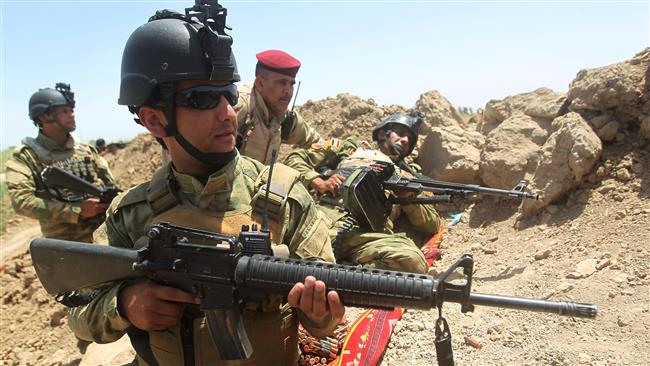
RNA - A police colonel, speaking on condition of anonymity, said Iraqi forces, backed by local and federal police as well as units and tribal fighters, carried out the offensive on Saturday to liberate the town of Husaybah, located seven kilometers (4.5 miles) east of Ramadi.
This is the first counter offensive against the extremists since the fall of the provincial capital a week ago.
“Military operation to retake Husaybah has begun. So far, the Husaybah police station has been liberated, as well as the area around it. The operation is making significant progress,” the colonel pointed out.
Leader of the of the Albu Fahd tribe, Sheikh Rafia Abdelkarim al-Fahdawi, also confirmed the start of the attack.
“The operation to take back Husaybah has started, with wide participation from tribal fighters. The security forces are advancing and they already retook a wide area,” he quoted by Press TV as saying.
The development comes only a day after Iraqi forces liberated the city of Khalidiya, in western province of Anbar 83 kilometers (50 miles) west of the capital, Baghdad, after flushing Takfiri ISIL terrorists out of the area.
On Thursday, Iraqi troops, backed by volunteer forces, broke the siege on the embattled Baiji refinery in the northern province of Salahuddin, liberating some 300 soldiers in the process.
Qais al-Khazali, head of the Asa’ib Ahl al-Haq volunteer forces, said the group and the security forces in Salahuddin successfully carried out the security operation to break the siege on Baiji refinery.
The northern and western parts of Iraq have been in chaos since ISIL started its campaign of terror in early June 2014.
R111/108/C/